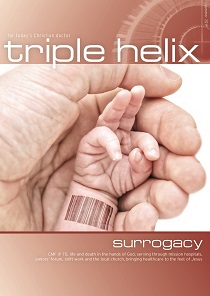In 2016, the State of Indiana passed the 'Sex Selective and Disability Abortion Ban'. This would have prohibited any abortion based solely on race, gender or disability. Following opposition from pro-abortion groups, a federal district court blocked enforcement of the law, declaring it unconstitutional. The State of Indiana appealed to the Supreme Court, which declined to overrule the decision.
The failure in May 2019 to reconsider this judgement prompted Justice Clarence Thomas to write a lengthy response (1), in which he states that laws such as this 'promote a State's compelling interest in preventing abortion from becoming a tool of modern-day eugenics'. (2)
We recoil at the mention of 'eugenics'. It conjures up images of the Nazi regime; the discrimination and genocide of those viewed as 'inferior'. However, it was well-established prior to the Second World War. Thomas describes the American eugenics movement of the early 20th century as a 'full-fledged intellectual craze'. Many states in America employed birth control for eugenic purposes. Between 1907 and 1983, more than 60,000 individuals perceived to be 'dysgenic' were involuntarily sterilised. In Buck v. Bell (1927), the US Supreme Court declared 'It is better for all the world, if... society can prevent those who are manifestly unfit from continuing their kind.' (3)
Thomas highlights that 'abortion is an act rife with the potential for eugenic manipulation'. The founder of Planned Parenthood, Margaret Sanger, whilst opposing abortion, believed that 'Birth control... is really the greatest and most truly eugenic method' of 'human generation'. Her campaign to target birth control in black communities fed into race-based eugenics. Future Planned Parenthood president, Alan Guttmacher, sanctioned carrying out abortions for eugenic purposes, saying '...it should be permissible to abort any pregnancy in which there is a strong probability of an abnormal or malformed infant.' A recent CMF blog explores the strong eugenic and racist opinions held by Marie Stopes (4), whose life heavily shapes the work of her namesake organisation today. (5)
Nowadays, we see the effect of selective abortion on population demographics. A recent study carried out across 90 countries found that globally, 23 million baby girls are missing as a 'direct consequence of sex-selective abortion', mostly in mainland China and India. (6) In Iceland, almost all children with a prenatal diagnosis of Down syndrome are aborted. (7) A topical CMF blog explores the ethical difficulties raised by non-invasive prenatal testing (NIPT). (8) The link between abortion and eugenics is too often brushed under the carpet, as though it is unfeasible that eugenics could be permitted today. However, the ongoing US debate shows us that despite appearances, eugenics has never gone away.
Review by Kelly Hibbert, a junior doctor and a Deep:ER Fellow with the CMF Public Policy team































